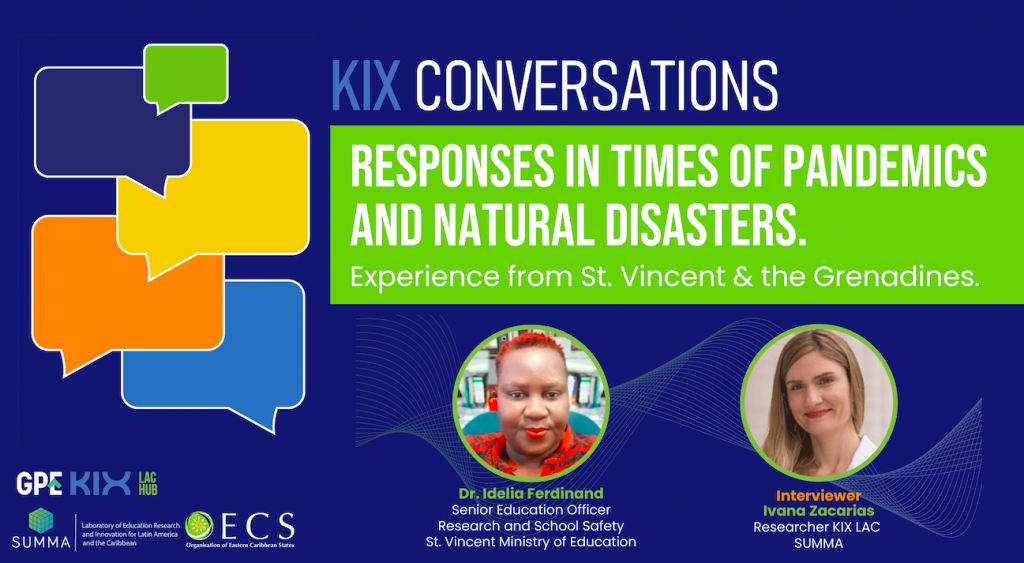COMPARTIR
Resilience in education: responses in times of pandemics and natural disasters. The experience of St. Vincent and the Grenadines
November 3, 2021
What do we do, how do we respond, and how are we able to recover and move forward?
For the sixth edition of the KIX Conversations, Dr. Idelia Ferdinand, Senior Education, Research and School Safety Officer of the Ministry of Education, National Reconciliation, Church Affairs and Information of St. Vincent and the Grenadines, and representative for that country in the KIX LAC center, was invited to tell us about the work being carried out on this issue in this region of the Caribbean. The interview was conducted by KIX LAC researcher Ivana Zacarias.
Resilience in the education system means the ability of the system to include schools, public institutions, other educational institutions and the community in order to prepare for response and recovery from the impact of hazards and reduce the likelihood of hazards turning into disasters, thus ensuring the safety of the school environment, providing equitable educational opportunities, even in the face of disasters, and the achievement of educational goals, which are to be able to continue teaching and learning despite the impacts of hazards in a safe learning environment.
The Eastern Caribbean is one of the regions of the world particularly prone to hazards, which include hurricanes, volcanoes, earthquakes, landslides, floods and health emergencies, among other threats. “In recent months we have had to deal with a dengue outbreak, COVID-19, the eruption of La Soufriere volcano and in July Hurricane Elsa, so this has been a very challenging year. This is why the Ministry of Education planned the strategy on three pillars, in terms of the school safety program: safe school facilities, disaster risk management and reduction, and education for resilience”, explained Ferdinand.
Some of the strategies implemented for the return to school, after COVID-19, were the evaluation of building facilities to analyze that the environments were safe; generation of hand washing stations, isolation and sanitization areas; training and awareness work with school staff in terms of protocols; ensuring the number of electronic devices and internet access even in rural schools; feeding and psychosocial support programs for students, teachers and parents.
Ferdinand details the learnings of the last year in three points, “The experiences of the events of the previous months, has taught us that planning is very important and this must start from a detailed assessment and identification of the gaps, which will allow us to review the objectives and do remedial work, to ensure that students are at the level that corresponds to them, despite the challenges. We also need to do more in terms of integrating technology and internet use in learning, not just in times of emergency, but as part of the normal process, and finally, we need to ensure the integration of the three pillars of school safety throughout our education system.”
In closing the interview and when asked what advice she would give to colleagues and governments in the region regarding school safety in the face of emergencies and disasters, Dr. Idelia assures that “planning is fundamental before, during and after any event at school, community and institutional levels, and the plans of the different levels must be synchronized to be effective. It is also very important to involve as many stakeholders as possible, whether they are public or private institutions, at the national, regional and international levels, since the information received from all the different interest groups adds value to the programs. The questions we all need to start with are: What do we do, how do we respond, and how are we able to recover and move forward?
Watch the event in Youtube
